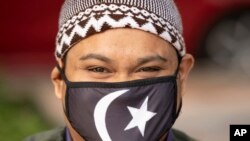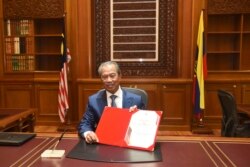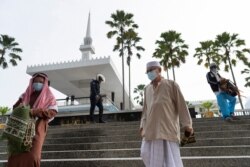In Malaysia the challenges keep piling on. The new prime minister went into a COVID-19 quarantine, even as he tries to crush rivals’ Game-of-Thrones-style attempt at his job. Hordes broke travel restrictions to celebrate Ramadan, leading to fears of a virus surge. And the economy has contracted, an outcome exacerbated by decreasing income from fallen oil prices.
While COVID-19 spares few nations, Malaysia faces a combination of issues in particular. Not least of these is the unprecedented power struggle in March, which brought the party that ruled Malaysia for 50 years back in office. Muhyiddin Yassin has been prime minister less than three months, with much of that time spent fighting off power grabs as well as fighting off the pandemic.
Now he’s in a two-week quarantine because another official came down with the virus. Adding to the tense political mood, rumors swirled that he went to Singapore for medical treatment, forcing Muhyiddin to deny the rumors last week.
“I wish to state that these are false claims and are not true at all,” he said, assuring the public that he continues to work from home in Kuala Lumpur. “Nevertheless, at a time when the nation is battling the COVID-19 pandemic, I will ensure that discussions are ongoing in planning the strategy to fight the disease.”
The Southeast Asian nation faces a confluence of “political uncertainty, supply chain disruptions, relatively high corporate debt” and decreased oil prices, said Raphie Hayat, a senior economist at Rabo Research Global Economics & Markets.
“Oil represents 14% of Malaysia’s exports and comprises almost 20% of the government’s revenue,” he said. “The latter will also hamper the government’s ability to mitigate the negative economic effects of COVID-19.”
While officials want to reopen the economy, new virus cases continue to be recorded daily, including in the triple digits on some days. The number of tasks that the state must tackle is not letting up. Infections have broken out among undocumented migrants, whom officials are treating while trying to fend off xenophobic complaints. Many citizens broke curfew to be with family on Ramadan and police have arrested thousands of people for breaking the Movement Control Order.
They have also arrested citizens who criticized the official handling of COVID-19, including journalist Wan Noor Hayati Wan Alias. She faces six years in prison after questioning why Malaysia allowed Chinese tourists to enter the island of Penang as the virus broke out.
“They dismissed early concerns and warnings about the coronavirus as ‘fake news,’” she said of officials in an interview published by the Committee to Protect Journalists.
Economists note that the virus emergency has caused gross domestic product to shrink 2% in the first quarter of 2020, and things will likely get worse before they get better. The fall in GDP was driven by decreases in exports and investment as foreigners demand fewer products and travel less.
“Consumer behavior is unlikely to return quickly to anything like normal, while fear of contracting the virus remains,” Alex Holmes, a senior Asia economist at Capital Economics, a research company, said.
He doubts that the central bank, the Bank Negara Malaysia, will stop at its latest decision to cut a key interest rate to 2% in early May. That was a bid to stoke demand in the economy and was already the lowest rate since 2009, at the height of the Global Financial Crisis.
“With growth set to be much worse than the bank is expecting,” Holmes said, “further rate cuts are only a matter of time."















